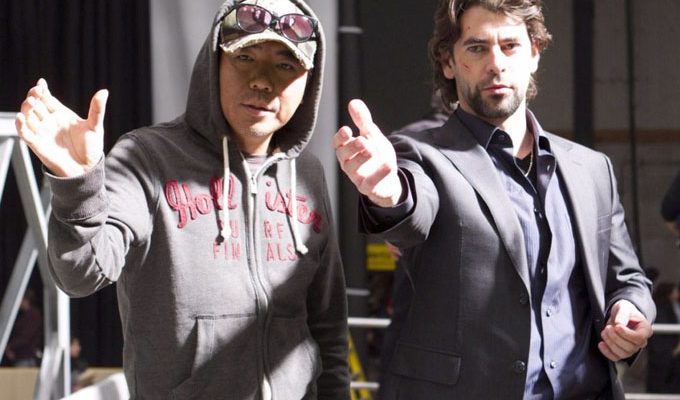 This weekend, American audiences will be introduced to a filmmaker they most likely have never heard of – South Korean director Kim Jee-woon. A talented, genre-bending filmmaker whose artistic depth is matched only by his technical proficiency, he’s making his western debut with “The Last Stand,” an old-school action thriller starring Arnold Schwarzenegger (read our review here). But for fans of Asian cinema, he’s been a director many have been keeping an eye on for a long time now.
This weekend, American audiences will be introduced to a filmmaker they most likely have never heard of – South Korean director Kim Jee-woon. A talented, genre-bending filmmaker whose artistic depth is matched only by his technical proficiency, he’s making his western debut with “The Last Stand,” an old-school action thriller starring Arnold Schwarzenegger (read our review here). But for fans of Asian cinema, he’s been a director many have been keeping an eye on for a long time now.
If anything has distinguished Kim Jee-Woon’s career, it has been his ability to shift gears. Just take a look at his last three films: the gonzo western “The Good, The Bad, The Weird“; the thrilling serial killer flick “I Saw The Devil” and a sci-fi short in “Doomsday Book.” But, for many it was likely “A Bittersweet Life” that brought the helmer to their attention, with the twisty crime flick putting him on the international map. Indeed, it’s even getting an American remake with Allen Hughes signing on to direct last fall. And it’s not exactly a surprise that Hollywood also came calling for Kim Jee-woon himself, so in honor of his first American outing debut, we thought we’d run down the director’s filmography and give you an idea of where to start if you’re not familiar with his work. While not as well known as his South Korean contemporaries Park Chan-wook or Bong Joon-ho, in our estimation he’s just as important and entertaining. Read on below….
 “The Quiet Family” (1998)
“The Quiet Family” (1998)
Kim made his debut with “The Quiet Family,” an assured, tonally light-footed tale of a family that runs a failing bed-and-breakfast in the country and whose sporadic visitors have a tendency to wind up dead (or murdered… or poisoned…). “The Quiet Family” is very much a product of its time, with brilliantly anachronistic music selections reminiscent of Tarantino-era American crime cinema (there are two Stray Cats songs and a tense body-removal sequence is scored to ’80s cheese-ball hit “So Alive” by Love & Rockets), but all the foundations of Kim’s lengthy, brilliant career are already in place, including his comic-book-panel compositions, roving Steadicam shots and, of course, the casting of star Song Kang-ho in a prominent role. It’s a testament to the film’s power that it was quickly (and, it should be noted, loosely) remade by Kim’s Japanese contemporary Takashi Miike as “The Happiness of the Katakuris,” which reframed the story from whacked-out sitcom to something more kaleidoscopically bizarre and amoral. “The Quiet Family” was a taste of things to come from the director, and remains one of his most purely enjoyable movies, a brisk, often hilarious film that incorporates and synthesizes elements from “Psycho,” “The Texas Chainsaw Massacre,” Blake Edwards comedies and a host of ’60s sitcoms, into something altogether unique and unforgettable. [B+]

